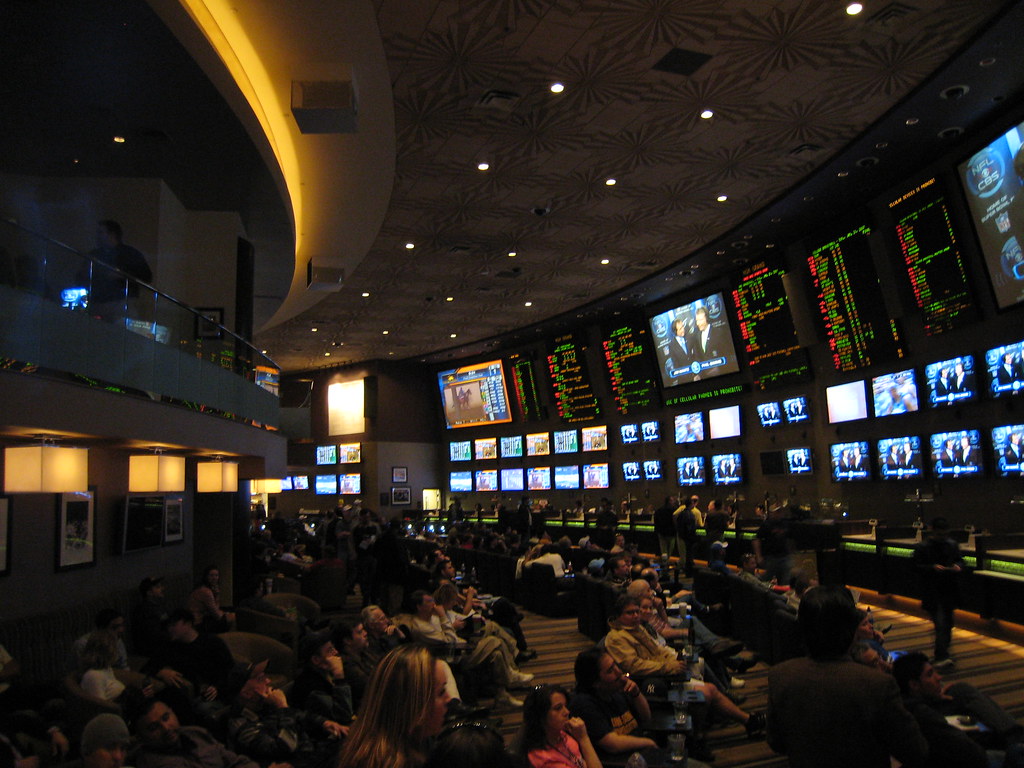Gambling Laws for Sporting Events
Legalized sports betting, once largely in the province of Nevada, has expanded dramatically over the last few years. Starting in 2018, three-fifths of states enacted laws allowing residents and visitors within their borders to wager on their sport of choice.
Perhaps more profoundly, many states have also allowed mobile betting, capitalizing on the use of handheld applications to grow interested. Mobile technology also allows for the expansion of new features, such as live in-game betting, where odds are in constant flux based on the state of the game.
What is the present situation of gambling laws for sporting events nationwide? The team at De Castroverde Law Group has put together this short guide to compare and contrast Nevada with other states. Here’s what you need to know, starting with a primer on Nevada’s regulations.
What Are Gambling Laws in Nevada?

Nevada pioneered legal sports betting when it passed regulations allowing it in 1949. This expansion to sports came about 20 years after the state legalized casino gambling as a strategy to help the state’s economy recover from the Great Depression.
The state’s gambling laws on sporting events cover wagers on competitive sports, such as football, baseball, basketball, hockey, and soccer. Horse racing is also legal in Nevada, but wagering is regulated independently. You must be 21 or older to place a legal sports bet.
Operating a sports pool, otherwise known as a sportsbook, requires a non-restricted gaming license that grants the operator the right to accept and payout on sports-related event bets. Operators are required to maintain a cash reserve for payouts of at least $25,000 at all times.
Bets are unlimited, although, for wagers over $10,000, the sportsbook must collect several pieces of personal identification when a bettor places a bet and when it pays out if successful.
Generally, betting is possible on most sporting events, but some restrictions exist. For instance, Nevada prohibits bets on amateur sporting events other than those that are part of the Olympics or college sports. The state also does not accept bets on election contests. Sportsbooks must also reject any proposed bets that they reasonably believe that coaches or other participants place.
Given the importance of tourism to Nevada, the state recognizes that not every bettor will be able to cash in immediately. Winning tickets expire after a minimum of one year. However, sportsbooks can set their own longer deadlines if they wish.
Nevada was also the first state to recognize the advantages of Internet technology and became the first to legalize mobile sports betting photos in 2018. Mobile betting is limited only to existing sportsbook operators licensed in the state. Bettors must also reside inside Nevada’s borders. Inside sportsbooks in casinos, bettors can place wagers using electronic kiosks.
Sports betting is a major contributor to economic activity and tax revenue in Nevada. According to the state Gaming Control Board, casinos take in around $500 million in sports bet revenue every month. The figure will fluctuate depending on the state of the economy. About 175 licensed sports pools operate in the state.
How Many Other States Allow Sports Betting?
According to the American Gaming Association (AGA), the District of Columbia and 30 states, in addition to Nevada, currently permit wagering on sports events. Another five have passed laws but are in the process of developing rules for implementation. A total of 20 states have enacted legislation allowing for online and mobile sports betting, and an additional five states have legislation pending.
The sharp increase in legalized sports betting occurred over the last four or five years after the U.S. Supreme Court overturned the Professional and Amateur Sports Protection Act of 1992, also known as PASPA. This bill outlawed sports betting across the nation, with exceptions made for Nevada, Oregon, Montana, and Delaware.
The overturning of PASPA has sparked a major surge in sports gaming revenue. According to the AGA, Americans placed more than $57 billion worth of sports bets in 2021, an increase of 165% over the prior year. Nevada bettors placed the second highest bets at about $8 billion, behind New Jersey, with $10 billion.
What Forms of Sports Betting Are Allowed?
Each state has a slightly different system in place. For instance, of the states that permit mobile sports wagering, only 14 allow betting to take place statewide. The states of Arkansas, Montana, and Mississippi allow mobile betting only when someone is inside a casino, according to the AGA’s State of the States report for 2021. The report lists New Mexico and New York as states that do not allow mobile gaming, but New York has since approved it on a statewide basis.
In-person sports betting also varies by venue across the states. The most common place for in-person sports betting is inside commercially licensed casinos. Washington, D.C., however, allows betting in sports arenas, lotteries, and other retailers. In addition, Illinois and Indiana allow off-track betting locations to accept sports bets, and many states have also authorized tribal casinos to do the same.
The states also vary in their policies toward betting on collegiate sports. Eight states, including Nevada, place no restrictions on college sports betting; others, including New York, Washington, D.C., New Hampshire, and Illinois, prohibit wagering on state- or district-wide college sports. Some states, such as Tennessee, Iowa, and Indiana, prohibit player proposition bets.
Counsel for Casino Matters
Like all forms of gambling, sports betting is tightly regulated in Nevada and other states. All activities involving casinos receive a high level of scrutiny from authorities. If you are charged with a crime stemming from a visit to a casino, let De Castroverde Law Group stand by your side. Our criminal defense team has experience with many offenses common to casinos, including casino markers, disorderly conduct, bad checks, false identification, solicitation, assault, battery, and weapons offenses. Call us today for a free consultation on your case.
Photo Credits: MGM Grand Sports Betting by Tom Lianza is licensed with CC BY 2.0